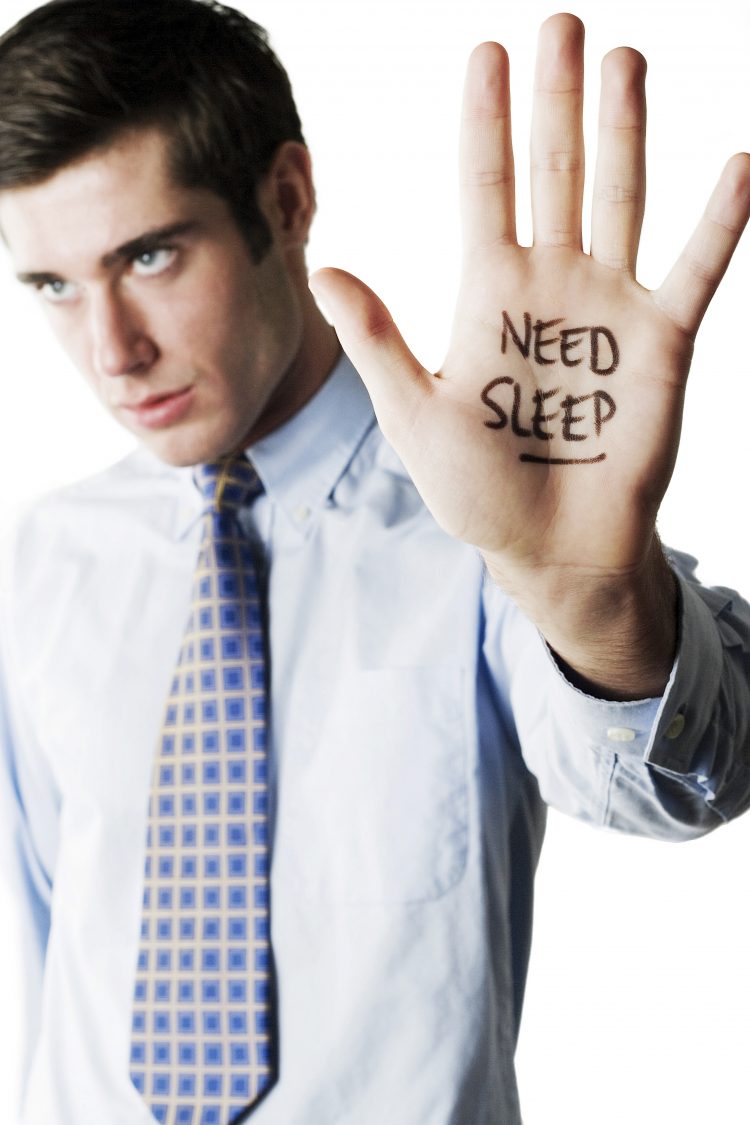There are more than 100 different sleeping disorders.
Sleep disorders cover a broad range of pathologies and can be grouped into four main categories.
Sleep Disruptive Behaviors
Unusual behaviors during sleep
Circadian Rhythm Problems
Problems sticking to regular sleep schedule
Excessive Daytime Sleepiness
Problems staying awake during the day
Insomnia
Problems falling or staying asleep
Adverse Effects of Sleep Disorders
A sleep disorder, or somnipathy, is a medical disorder of the sleep patterns of a person. Some sleep disorders are serious enough to interfere with normal physical, mental, social and emotional functioning. Sleep disorders are broadly classified into dyssomnias, parasomnias, circadium rhythm sleep disorders involving the timing of sleep, and other disorders including ones caused by medical or psychological conditions.

Sleep Deprivation
Not all sleep issues are a result of a sleep disorder but can still result in sleep deprivation.➀ Sleep deprivation is a chronic sleep-restricted state that can cause fatigue, daytime sleepiness, clumsiness and weight gain.➁It adversely affects the brain and cognitive function. Another serious effect of sleep deprivation is “Drowsy Driving”. The United States National Highway Traffic Safety Administration reports in 2013, 72,000 crashes, 800 fatalities and 44,000 injuries were the result of drowsy driving.➂
Historically, pharmaceutical products are the most common modalities used for the treatment of sleep deprivation with approximately US$2.4 billion annually is currently spent on hypnotics and sedatives. A major concern for those prescribing and using insomnia medications is the high risk of dependency, withdrawal problems and rebound insomnia.
Products containing antihistamines (Over-the-Counter products) may cause daytime sleepiness, cognitive impairment, dizziness etc.
Benzodiazepine Hypnotics may cause severe allergic reactions and respiratory problems and may exacerbate depression. They may cause memory loss, sleepwalking and altered mood states. Elderly users may develop urinary incontinence.
Non-Benzodiazepine Hypnotics can cause drowsiness, dizziness, fatigue, headache, unpleasant taste and diarrhea.
Pregnant women should not take these products as the drug can cross the placenta and cause developmental disorders in the fetus.
SomniResonance® offer you the SR1, a non-invasive approach to help you fall asleep faster and feel more rested in the morning. This small, lightweight device helps you get to sleep quickly and naturally, with no side effects.
The SomniResonance®SR1 device should not be regarded as a substitute for the attention of your family doctor or medical specialist.
➀ https://en.wikipedia.org/wiki/Sleep_deprivation
➁ http://news.uchicago.edu/article/2016/03/01/sleep-loss-boosts-hunger-and-unhealthy-food-choices
➂ http://www.nhtsa.gov/Driving+Safety/Drowsy+Driving

